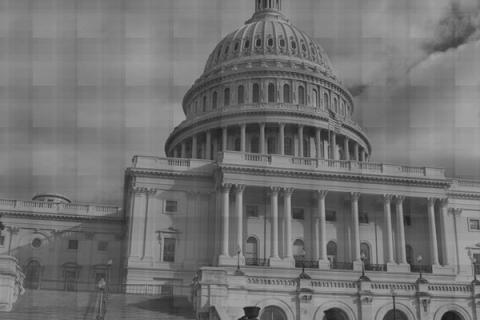In April 2012, ethnic Tutsi soldiers mutinied against the government of the Democratic Republic of the Congo (DRC) in Africa. This ongoing conflict dates back to the Second Congo War, which also carries the name the "African world war" as it involved nine African nations and about 20-armed groups, that began in 1998. Despite a treaty being signed in 2003, fighting has continued in the eastern part of the DRC. There are stories that involve rape and other sexual violence that is being described as the worst in the world. And since 1998, the conflict has killed more than 5.4-million people, thus giving it the distinction as the world's deadliest conflict since World War II.
In 2009, the National Congress for the Defense of the People (CNDP) signed a peace treaty in which it agreed to become a political party in exchange for political prisoners. When the Tutsi troops defected from the government earlier this year, they formed the rebel group M23 (March 23 Movement) with other former members of the CNDP claiming that the President of the DRC cheated in the recent election. Most of the fighting has been around Goma, the capital of the North Kivu province, resulting in its capture by rebel forces on November 20th. For the year (as of November 21st), 350 rebels have been killed with another 250 wounded. The government has reported that 40 have been killed with 93 wounded by the same date. One UN peacekeeper has also been killed. The US government has even threatened to cut off aid to neighboring Rwanda as it is rumored that that nation's government is aiding the rebels forces.
The DRC is one of the poorest countries in the world... with the second lowest GDP. However, it is one of the richest in the world when it comes to natural resources. It's untapped deposits of raw minerals is estimated to be worth approximately $24-trillion. These minerals include cobalt, copper, and 30% of the world's diamond reserves. It also contains coltan, a major source of tantalum which is used in making electronic components in computers and mobile phones. Most of us have heard of blood diamonds before, but what about blood computers and blood phones? There are certain laws in place where minerals such as diamonds are not supposed to be bought and/or sold from nations in conflict; however, those minerals are still generally smuggled out.
The Democratic Republic of the Congo (DRC) with the North Kivu province highlighted.So why is any of this important? Let's go back to the beginning... 5.4-million people have died since 1998 in this ongoing conflict. If this conflict was happening between Israel and the Palestinians or if it was happening in Europe, we would be involved. But because it is Africa, we have yet again turned a blind eye to the ordeal. It's not about picking one side over the other, it's about making sure that genocide is not taking place... or any human rights violations. We invade countries in order to get oil, but the DRC has no oil. Maybe that explains our neglect of this issue, but it still does contain valuable minerals that we use without even realizing it. Though it is rich in those minerals, it is severely underdeveloped... even moreso than when it gained its independence from Belgium in 1960. Two-thirds of the population suffers from malnutrition. Some of this is the result of the ongoing conflicts. As a result, the DRC is not able to take advantage of its vast richness. According to a UN report, the river system in the DRC could provide hydro-electric power to all of Africa. And for those that want to blame the typical African corruption that we generally see taking place, the DRC is one of the twenty lowest ranked countries on the Corruption Perception Index. This is a country that should be investing in itself and in democracy. It could easily be a world player. While making sure there is not any human rights violations (or genocide), we should be helping to bring about stability by bringing the various sides to the table to get an agreement they can agree on, and to make sure its implemented. We talk about spreading democracy around the world, but why not do it through peaceful means instead of by bombs and guns? We don't need the military involved in such a situation unless we have to move in to stop atrocities. In a recent development, though, Uganda's Chief of Defense has said that the leader of the M23 rebel forces has agreed to let him mediate a truce. Part of this agreement was that M23 forces would leave the provincial capital of Goma, but that has not happened yet. Let us be diligent with our observations and not allow this to escalate into a bigger problem. There is a vast opportunity for something good to come from this, but the world must not let it slip through its fingers.
SIDENOTE:
After capturing Goma, the M23 forces took the neighboring town of Sake. They are now moving onward to take the capital of South Kivu. Government forces did launch a counterattack to retake Sake on November 22.

